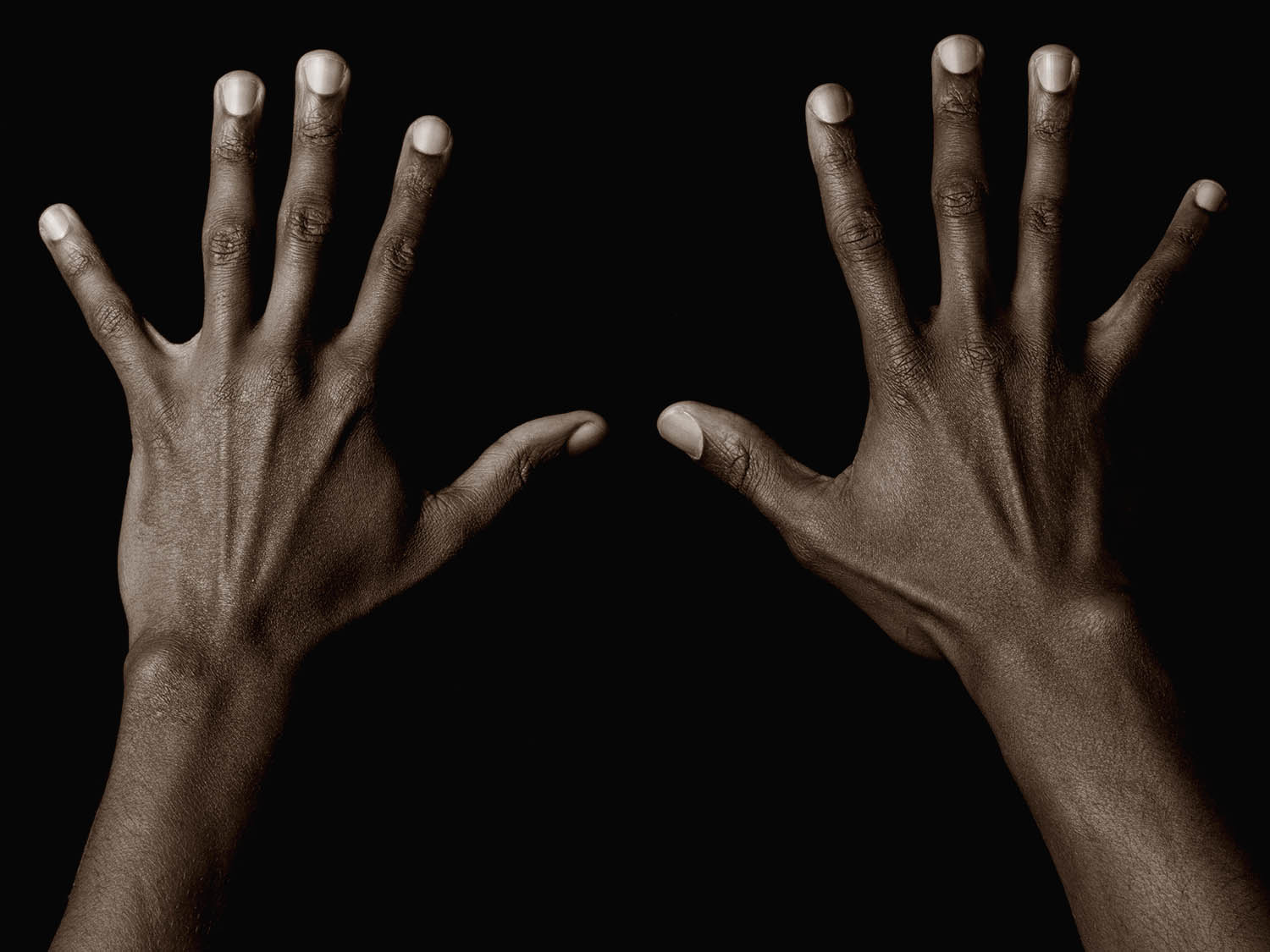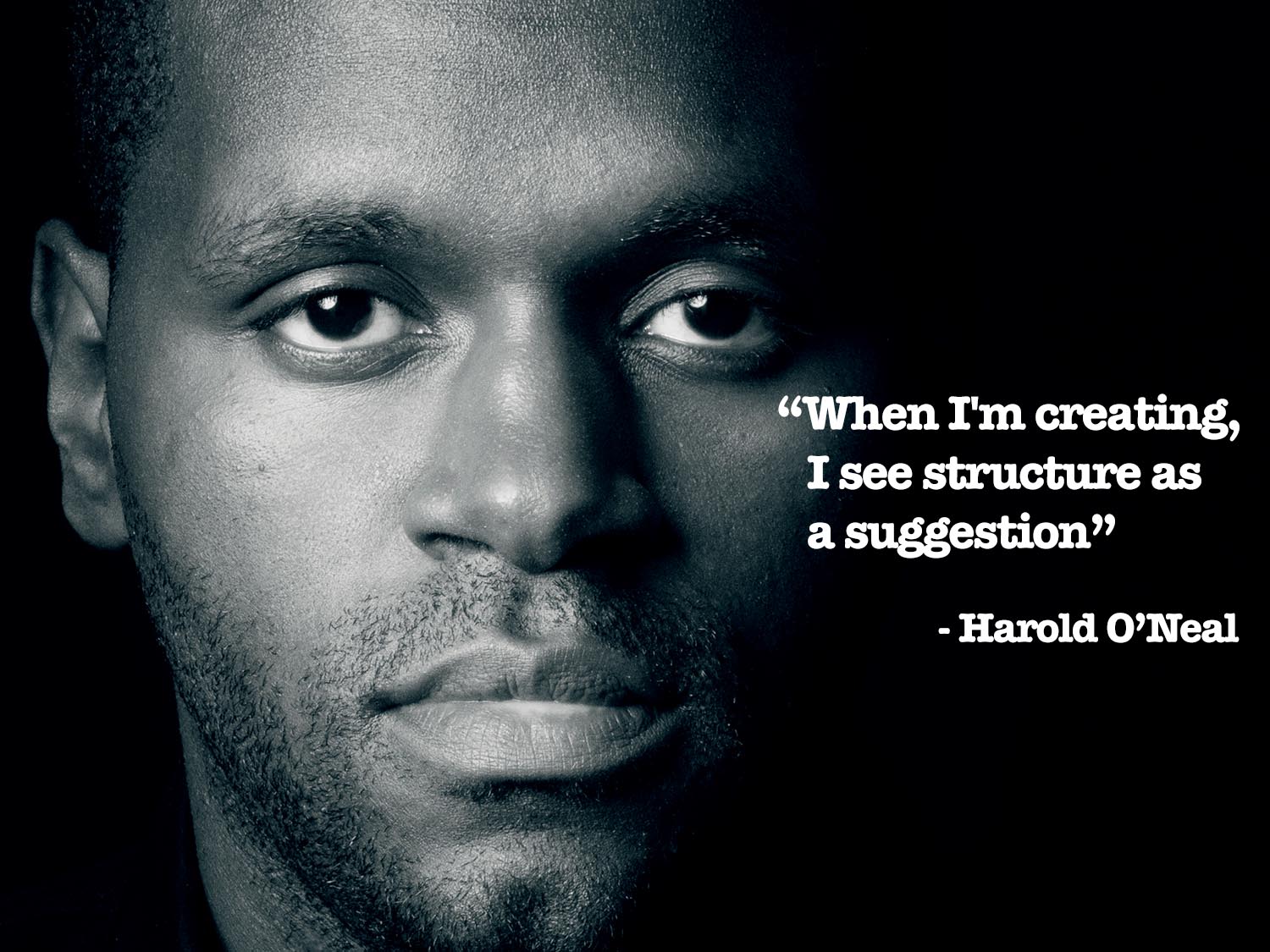
The New York Times has compared the musical compositions of Harold O'Neal to Ravel and Ellington. Is it unusual that a celebrated Jazz pianist should gently rebuff the label of "jazz musician?" O'Neal does, but it's understandable; his accomplishments and talents outside the realm of jazz as a musician, composer and producer have included collaborations and performances with names like U2, Aloe Blacc, Lupe Fiasco, Bob Geldof, Ski Beatz, Damon Dash, Mac Miller and Cam'Ron.
O'Neal spoke to HUMAGNA about some of what goes into the music he makes today:
HUMAGNA: You have jazz roots, so to what extent do you work with improvisation outside of the genre?
O'NEAL: I believe that improvisation is present in everything around us. I use improvisation in two categories. Reaction and response. Conscious and unconscious. My heartbeat, my breathing... It was in jazz that I learned how to develop and expand my vocabulary in musical improvisation. If it's an artist I'm producing for, I'll stay open and try to be as available as I can to respond to what's going on for them. It's the space where the coin is in the air and you have to decide whether you're going to pick heads or tails. That is improvisation to me.
HUMAGNA: With respect to structure, do you feel the need to adhere to certain conventions? When and how might you deviate from them?
O'NEAL: First, it depends if it's a personal project of passion or if it's business. Usually, I have a combination of both. I have some pieces that are very abstract. I have some pieces that are very practical. If I'm working with another artist, my job is to see what they want and help extract that from them in the form of music. Everything about them is a suggestion. If I'm writing about a sunrise, everything about the sun is a suggestion of structure. When I'm creating, I see structure as a suggestion. A blueprint for a possible outcome. Sometimes I'll write a piece that intentionally fits into structure. Sometimes I use structure as a launching pad into deviation.

HUMAGNA: To what extent do you treat a musical composition intellectually vs emotionally?
O'NEAL: That's a good question. I seem to be at my best when I have a clear and conscious choice about how much I let one fuel the other. If there is an imbalance, it will come out in the music I'm making. That happens sometimes. It would be a waste of time If I were looking for absolute perfection in having the ability to maintain perfect balance forever. This leads me to a funny place actually. What if I get emotionally frustrated because my intellect realizes that there is an imbalance and it's affecting my music? That's when it's time to write a piece about imbalance.
HUMAGNA: How do you discover music today? Is this facilitated by any of the digital platforms like spotify or tidal?
O'NEAL: Shazam has been my best friend lately. I love being anywhere and being able to just hold my phone in the air and have it tell me what song it is. I can't tell you how many times I could have used that in the past. I have a love-hate relationship with the streaming apps. They don't pay musicians as much as selling hard copies, but I love being able to have so much music in my phone with barely lifting a finger. I hope that Tidal is successful with the difference they're trying to make in that.
HUMAGNA: What are you working on today? What’s your current relationship like with jazz?
O'NEAL: I have a plate that's constantly full these days. I've been producing for many artists and their new albums. Zee Avi, Aloe Blacc, Katya Lee of Fabrika... I performed with Aloe recently for the Global Citizens Festival. I also have some film scoring projects on the horizons, upcoming live showcases in New York, and a series of cinematic piano compositions that I will be releasing in the form of mixtapes.
Jazz is a very special form of music. It is the foundation of most forms of American music. It will always be in my heart forever.